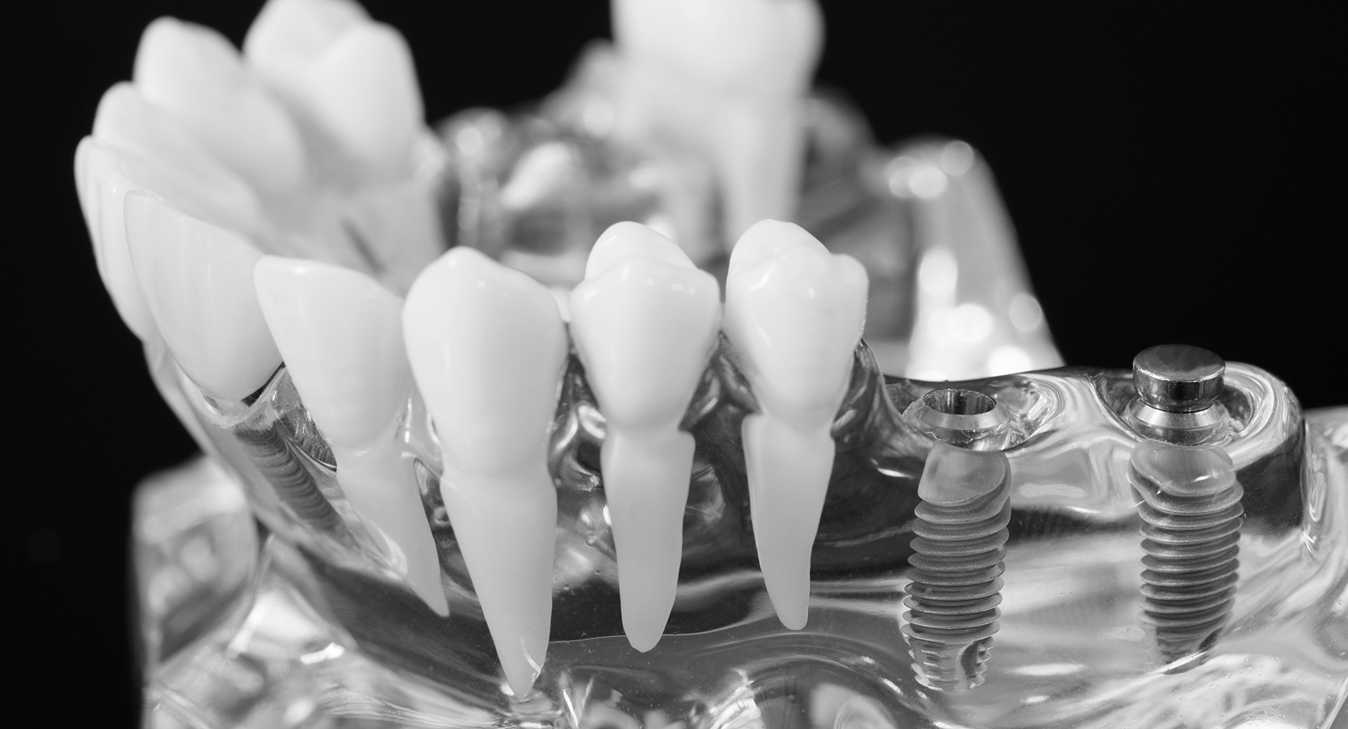An Introduction to Dental Costs in Argentina.
Argentina is among the top chosen countries in Latin America for foreigners to receive (cosmetic) dental care. Dental care professionals in Argentina are highly qualified, educated, and recognized for their precision work. Clinics are also keen to use modern technologies and maintain competitive treatment prices. If you are considering getting dental work done in Argentina or its capital, Buenos Aires, take a look at our ultimate guide below.
The Ultimate Guide to Dental Care in Argentina
Dental Cost Guide for Argentina: What You Will Find in This Guide.
On this page, you will find helpful information about the costs of affordable, high-quality dental care in Argentina. As well, the listed dentists on our platform will be able to provide you a free and personal cost calculation if desired.
- Costs between US & Argentina
- Easy to Use Cost Comparison Tool
- On What To Pay Extra Attention

Is Argentina Good for Dental Work?
Yes. Compared to other countries in Latin America, Argentina has one of the best quality standards for dental work, especially cosmetic dentistry. Tourists worldwide visit the country and get dental work done in cities like Buenos Aires, Mendoza, and Cordoba.
The average dentist here in Argentina is keen to provide you with tailored, personalized and high quality treatments. An advantage compared to for example Mexico, is that massive dental tourism is not present in Argentina. You will see less ‘all-in-one package offerings’ but a more tailored approach.
Is Dental Care Free in Argentina?
Yes, in Argentina’s public sector, dental care, medical appointments, hospital visits, emergency transport, prosthetics, and rehabilitation services are free. Only prescriptions incur charges, which are often subsidized. Cosmetic dental treatments are generally not free and are not covered by public sector reimbursements. Cosmetic treatments usually take place in the private sector. Be aware if dental treatments are offered at very low prices. The quality used for materials might vary substantially, affecting the durability of your treatment results.
- Check Dental Cost in Advance
- Assure Insurance Coverage
- Request Clear, Upfront Pricing
- Be Cautious When Its very Cheap
Costs of Dental Care in Argentina.
To get you some indications of dental costs spend in Argentina versus countries like the United States, we have developed a cost comparison tool. You can use the tool to compare the costs of the most popular dental treatments among tourists, between the United States, Canada and Argentina.
Compare Your
Specific Dental Costs
Dental Cost Comparison Tool.
We often hear from patients that they save anywhere between 50% and 70% on dental care in Argentina compared to what they’d pay in the U.S. or Europe. Of course, actual savings depend on various things — like the clinic you choose, the type of treatment, and the materials used.
Cost of Dental Procedures: US. vs. Argentina.
To give you an idea of what dental care might cost in Argentina, we’ve put together an overview comparing average prices with those in the U.S. These are estimates — actual costs may vary by clinic and materials used.
| Dental Treatment | United States | Argentina |
|---|---|---|
| Dental Implant | $2,500-$4,500 | $3,000-$5,000 |
| Dental Crown | $1,000-$2,000 | $800-$1,500 |
| Dental Veneer | $900-$1,800 | $700-$1,200 |
| Dental Bridges | $1,200-$2,500 | $600-$1,200 |
| Teeth Whitening | $300-$600 | $200-$400 |
| Dental Filling | $150-$300 | $100-$250 |
| Regular Braces | $3,000-$6,000 | $2,000-$4,500 |
| Invisalign Braces | $4,000-$7,000 | $3,000-$6,000 |
| Bruxism Trays | $300-$600 | $200-$400 |
| Root Canal Treatment | $800-$1,500 | $600-$1,200 |
| Periodontal Treatment | $1,000-$2,000 | $800-$1,500 |
| Dental Emergency | $200-$400 | $150-$300 |

Cost of Multi-Teeth Treatments.
Many people visit Argentina for complex dental work, like full-arch restorations or multiple crowns. Below are a few commonly requested procedures, with general price comparisons to the U.S. These estimates reflect the use of durable materials, often imported from countries such as the U.S., Switzerland, or Germany.
| Dental Procedures | US 2025 | Argentina 2025 | Avg. Savings (%) |
|---|---|---|---|
| All-on-4 Implants + Crowns + Teeth Whitening | $24,000-$32,000 | $7,000 | 71-78% |
| 2 Implants + 2 Porcelain Veneers | $11,000-$13,000 | $3,500-$4,500 | 59-64% |
| Full-Mouth Reconstruction with Implants + Crowns + Root Canals | $50,000+ | $15,000-$25,000 | 50-67% |
| 3 Dental Crowns + Teeth Whitening | $6,600-$9,600 | $2,500-$3,500 | 58-74% |
| 4 Dental Veneers + Crowns + Teeth Whitening | $11,600-$14,000 | $3,000-$4,000 | 65-75% |
| Dentures + Implants + Implant-Supported Dentures | $15,000-$30,000 | $8,000-$15,000 | 38-47% |
"I Want Cheap Dental Implants."
- Make Sure They Will Be Safe and Last.
A question often heard from future patients is: “Where can I get cheap dental implants?” But when safety and durability also matter, what does “cheap” really mean? You can explore this topic further in a dedicated article.
Complications: Cheap Dental Treatments
Cheap Dental Materials Used for Dental Treatments.
If a clinic offers significantly lower prices than others, it’s worth looking closer. Lower costs can sometimes mean lower-quality materials. While the treatment might seem affordable upfront, issues may appear later on. That’s why it’s important to stay informed.
Brands Used for Treatments
Dental care in Argentina can cost up to 60% less than in the U.S., often using materials from internationally known brands like Straumann, 3M, Zimmer Biomet, or Invisalign. These lower costs are mostly due to reduced living and operational expenses.
Some clinics may offer budget-friendly options while still focusing on quality. It’s important to check which materials are used — and to ask for written confirmation from the dentist that specifies the brands involved in your treatment.
International Material Standards
Make sure the materials used in your treatment meet international standards and certifications. Recognized brands usually follow strict testing and safety protocols — something worth checking before moving forward.
Materials that don’t meet these standards can increase the risk of complications, which may lead to higher costs over time. That’s why it’s important to review your treatment plan carefully.
Before agreeing to treatment, look for a clear mention of the material brands and any quality standards they meet. A written note from the dentist can help ensure transparency.
Dental Material Durability
Ask your dentist which materials will be used in your implants or crowns. Materials like high-grade titanium or premium ceramics are often chosen for their durability. Lower-quality alternatives may not last as long and could increase the chance of issues later — potentially leading to extra costs once you’re back home.
Longevity and Guarantees
It’s helpful to ask about the expected lifespan of the materials used in your treatment. You can also check whether any guarantees are provided by the clinic or the material brand.
Some high-quality implants are known to last decades, while others may have a shorter lifespan. Brand guarantees may offer added reassurance, especially in case of early complications.
Patient Reviews on Materials
When reading reviews, check if patients mention the materials or brands used in their treatments. This can give helpful insight into the clinic’s transparency and the quality of care they provide.
Feedback from others may also highlight whether materials held up well over time — which can support you in making informed choices.
Potential Complications
It can be helpful to learn about potential complications linked to different material brands, even if this isn’t always easy as a patient.
Some high-quality materials are designed to reduce the chance of allergic reactions or early failure. In contrast, lower-cost options may carry a higher risk of issues, which could lead to further treatment and added costs later on.

Stories From Patients.
Over the years, many people have traveled to Argentina to explore the country — and to receive dental care while they’re here. In this section, you’ll find stories from patients reflecting on their experiences with clinics in Argentina and how they look back on their care abroad.
"I Liked The Tailored Approach".


Quality and Safety
of Dental Treatments in Argentina.
When exploring dental treatment in Argentina, safety and quality are important considerations. Many clinics in larger cities like Buenos Aires, Mendoza, and Córdoba follow local health regulations. Clinics featured on Teeth Traveler also aim to meet international standards in the materials they use and how they operate.
A Complete Checklist for
Dental Work in Argentina.
Before planning your dental trip, it’s helpful to create a checklist so you’re fully prepared. To support you, we’ve put together a guide with practical tips and reminders — helping you stay organized and avoid surprises along the way.
- Right treatment chosen
- Dental office selected
- Reimbursement fixed
- Fixing reliable aftercare
- Interesting sightseeings
- Travel schedule done
An Online Quote.
Quick and Free.
It’s helpful to understand the estimated cost of your treatment before planning your trip. You can request a free online intake to receive a personalized quote and get a clearer idea of potential expenses.
Frequently Asked Questions (FAQs) on Cost of Dental Care Abroad in Argentina.
A lot of information is shared about the cost of dental care in Argentina. Within this section we mentioned the frequently asked questions regarding the cost of dental work in Argentina.
How much does a dentist cost in Argentina?
The cost of visiting a dentist in Argentina varies depending on the procedure and the clinic. Basic treatments like check-ups and fillings are generally very affordable, while more complex procedures like root canals cost more. Most prices are significantly lower than in countries like the U.S. or Canada.
The table below provides a general overview of common dental treatments and their estimated price ranges.
| Procedure | Minimum Price (USD) | Maximum Price (USD) |
|---|---|---|
| Routine dental check-up | $20 | $40 |
| Dental cleaning (prophylaxis) | $30 | $60 |
| Dental filling | $60 | $100 |
| Tooth extraction | $40 | $80 |
| Root canal treatment | $200 | $300 |
Is dental care free in Argentina?
Basic dental care is available for free at public clinics in Argentina, but this mainly applies to residents. It includes services like check-ups and tooth extractions.
As of late 2024, the government announced that non-residents may be required to pay for public healthcare services, including dental care. For more advanced or cosmetic treatments, patients typically use private clinics and pay out of pocket.
Can Americans get healthcare in Argentina?
Yes, Americans can access healthcare in Argentina. While public healthcare was previously available to everyone, including foreigners, recent changes suggest that non-residents may need to pay for these services.
Many Americans choose private clinics, which offer shorter wait times and a wider range of services. Travel health insurance is recommended to cover any medical or dental expenses.
How much are dental implants in Argentina?
Dental implants in Argentina typically cost between $590 and $790 USD per implant. The price depends on the type of implant used — locally manufactured or imported — and usually includes the implant, abutment, and crown. Costs may vary by clinic and case complexity.
The table below outlines the estimated price ranges for different types of dental implants.
| Procedure | Minimum Price (USD) | Maximum Price (USD) |
|---|---|---|
| Argentinian-made implant | $590 | $690 |
| Imported implant (e.g., 3i Biomet) | $790 | $990 |
Is dental work cheaper in Argentina?
Yes, dental work in Argentina is often significantly more affordable than in countries like the U.S. or Canada. Patients can save between 50% and 70% on treatments such as implants, veneers, and crowns.
This affordability, paired with access to experienced professionals and internationally sourced materials, makes Argentina a popular option for dental travel.
How much does a crown cost in Argentina?
Dental crowns in Argentina generally range from $300 to $550 USD, depending on the material used and the clinic. Common options include porcelain-fused-to-metal, full porcelain, and zirconium — all offering reliable, aesthetic results at lower prices than in many countries.
The table below outlines the typical cost range for different types of crowns.
| Procedure | Minimum Price (USD) | Maximum Price (USD) |
|---|---|---|
| Porcelain-fused-to-metal crown | $300 | $400 |
| Full porcelain crown | $400 | $500 |
| Zirconium crown | $450 | $550 |
How much is teeth whitening in Argentina?
Teeth whitening in Argentina typically costs between $190 and $550 USD, depending on the treatment method and whether a take-home kit is included. These procedures are commonly chosen by dental travelers looking for professional results at accessible prices.
The table below shows the estimated cost range for common whitening options.
| Procedure | Minimum Price (USD) | Maximum Price (USD) |
|---|---|---|
| Power bleaching session | $190 | $220 |
| Power bleaching + take-home kit | $330 | $550 |
How much is a root canal in Argentina?
Root canal treatment in Argentina usually costs between $200 and $300 USD. Factors such as which tooth is treated and the complexity of the case can influence the final cost. Many patients choose Argentina for this procedure due to its affordability and availability of skilled professionals.
The table below outlines the typical price range for root canal therapy.
| Procedure | Minimum Price (USD) | Maximum Price (USD) |
|---|---|---|
| Root canal treatment | $200 | $300 |
Get Personally Adviced
At Teeth Traveler, we’re here to share helpful information — not to offer medical advice. This article is for general informational purposes only and does not constitute medical advice, diagnosis, or treatment. Teeth Traveler is not a healthcare provider and does not offer medical services. The clinics listed on our platform operate independently and are responsible for the care they provide. While we aim to offer helpful guidance, readers are encouraged to consult directly with licensed dental professionals before making healthcare decisions or pursuing treatment abroad. No rights may be derived from the information provided on this page. For more details, check our disclaimer and terms of use.

